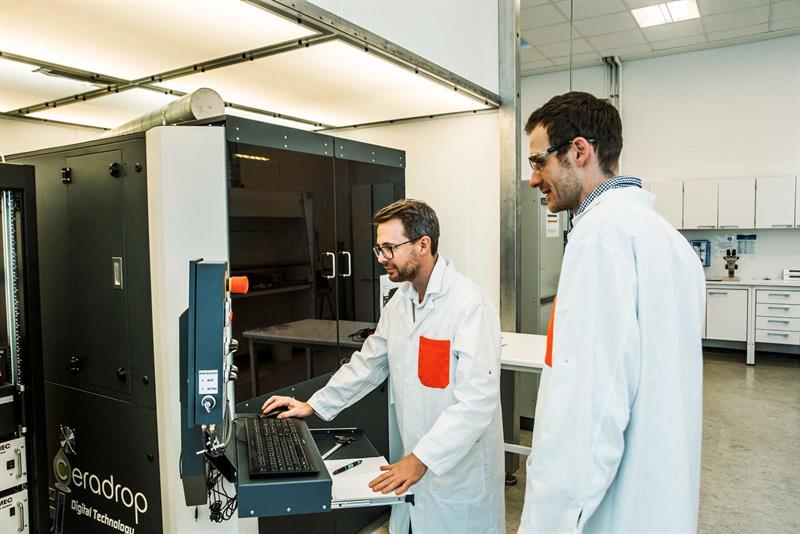Key to this is printed electronics, a technology that makes it possible to print conductive circuits on just about any surface.
From contactless payment cards to industrial IoT components all contain small electronic components that makes it possible to perform wireless readings or activities.
The conductive components in these products are embedded using increasingly specialised industrial printers, employing ink jet and aerosol jet technology to print a very fine layer on supple materials such as plastic sheet, paper and textiles.
"Printed electronics opens up a whole world of new opportunities, as complex constructions can be embedded just like using 3D printing, at prices able to compete with mass-produced goods. Quite simply because electronics can be produced from CAD drawings and printed on flexible materials, as already used in architecture and 3D print," said DTI's Project Coordinator, Zachary James Davis.
Researchers at DTI have been working with the technology since 2016 and have teamed up with 16 RTOs and leading businesses across Europe. DTI has just been awarded, through Horizon 2020, €10.6 million to develop an open innovation test bed (LEE-BED) - which will function as an innovation hub – to focus exclusively on printed electronics, the market for which is already estimated at a value of $32billion.

LEE-BED intends to support implementation of printed electronics in Europe.
"All the partners in LEE BED will provide their various skills and facilities within printed electronics to enterprises that want to integrate and embed electronics into their products," said Davis.
Enterprises will be able to apply to join LEE BED, after which their business case will be evaluated. If deemed to be suitable for participation in LEE BED, they will get access to those RTOs that best match their requirements. They will also have access to equipment and expertise from designated RTOs to support development efforts from prototype through pilot production to full-scale manufacturing.
"Enterprises will be able to prove the viability of new technologies without major investment and financial risk during the all-important initial phase. We have already started working with jewellery giant Swarovski, looking into the idea of intelligent light in their crystals that can be integrated with clothing and home interiors," Davis concluded.













